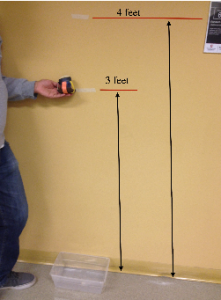Micelles are a developing form of technology. They are big enough to carry medicine but small enough to attach to the cells in the human body. But what exactly is the size of a micelle? On average, the diameter of a micelle is 30 nanometers long. But how small is that? If you picture a meter stick and then shrink it by 1000 times, it is now a millimeter long. If you then shrink the millimeter by another 1000 times, it becomes a micrometer. But if you take it a step further and shrink the micrometer by another 1000 times, it is a now a nanometer! Just imagine holding one human hair that has an average width of 100 micrometers. That one human hair could fit over 3000 micelles across its width. Having tools so small opens a world of opportunity. But the smaller something gets, the harder it is to make.
Students will design a model of a micelle using a Dixie cup that will be strong enough to hold as many marbles as possible. They will also design a micelle without using a Dixie cup and determine which micelle held more marbles.
The student handout will be given to all students working on the design
challenge. It gives a brief recap of the story, it helps the students identify what they are attempting to achieve, and it recaps the design process.
Engineering Micelles TEK8 Instructor’s Guide
This Instructor’s Guide provides the instructor additional information on how to run the design challenge with alternatives for materials and test setups as well as information to help make the design challenge a good educational experience.
Telling the Story Video
The Telling the Story Video conveys the societal impact of the student’s research that is the basis for the design challenge and will set the problem-solving context for students.
Design Challenge Video
The Design Challenge Video leads students through the design process. It indicates materials available, states what the criteria are for success and any constraints. It also gives a second ‘level’ of the design challenge that allows ‘early completers’ to move on to a slightly more difficult challenge.
